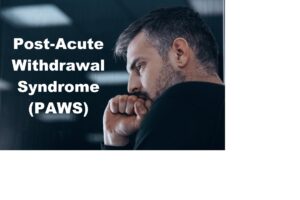When a family member is addicted to opioids, you can feel powerless, guilty, or confused. Let us at Direct2Recovery be the first to say that it’s not your fault. Drug addictions are complex and have numerous factors that go into them — it’s rarely just one instance or one oversight. Many things go into it and you should not blame yourself for it.
There are steps you can take to get your loved one the help they need to recover from their addiction, though. That’s what we want to talk about today in this blog. What can you do when you discover a family member is addicted to opioids?
Understanding Opioid Addiction
Opioid addiction affects millions of people in the United States. While we know it’s a shock that one of your loved ones developed this condition, it’s important to understand that your situation is not a cause for isolation — you’re not alone.
Many people don’t get addicted to opioids by trying them at a party or throw an illegal transaction. Opioids are unique because they can be acquired legally for legitimate medical reasons. Many prescription painkillers contain opioids. Because they’re highly addictive and highly effective, many patients don’t realize they are addicted to the pain-relieving effects until after they’ve developed a strong tolerance and dependency.
The National Institute on Drug Abuse (NIDA) estimates that between 21-29% of those who receive opioid prescriptions end up misusing them, and up to 12% develop an addiction. A shocking 80% of people who turn to heroin started with prescription opioids first.
As addiction progresses, you will see broad and deep changes in your loved one that cause worry and heartache as you navigate your relationship. You want the best for the important people in your life, and that means doing everything you can to get them opioid addiction help.
Understand Your Loved One
Substance use disorders are diseases that can negatively affect a person’s behavior and personality. They often tend to change into another person and begin to isolate themselves from their family and friends.
It can hurt to watch this happen to someone you love, but you need to try and understand what they’re going through before you judge them too harshly. We know that drugs can lead to lying, cheating, stealing, manipulation, and horrible things, and you have every right to protect yourself and your family. But before you close the door on helping them, try to understand them first. After all, they are still family.
What can you do if you have a loved one addicted to opiates?
The “Tough Love” Approach
Many families try to employ tough love. The common belief is that cushioning or smothering the affected loved one will only worse their addiction, or will encourage it. So a family may refuse to help them until they’ve gotten clean as a way of motivating them.
Tough love often pushes your loved one right to rock bottom — they can only turn to rehab or further their addiction by themselves. They have nothing more to lose, but everything to gain if they decide to take the step toward recovery.
While tough love is very common, it puts an enormous amount of pressure on your loved one and is totally isolating. If their addiction was triggered by trauma, depression, or suicidal thoughts, this method can be dangerous. Hitting rock bottom can very easily lead to overdoses, hard drugs such as fentanyl, or arrest.
Loving Them Unconditionally
On the opposite end, you can try nurturing and supporting them — not their addiction, but them as a whole person. Instead of tough love, people are simply using plain old love to try to coax their family member back into the fold, and you can try to encourage them to seek treatment.
This requires a lot of patience — drug addiction often leads to relapse and lying, so you need to have patience to continue offering support and love. Talk with them, approach them gently, and have a plan.
Sometimes, this means driving them to and forcing them to attend an in-patient or out-patient clinic. While they may not want to at the time, they will thank you for it once they start to recover.
Quitting substance use is incredibly difficult and left to themselves only 10% of users will recover without any additional help. That’s why we bring everything together to give them the best odds.
Up to 50% recover with a combination of Direct2Recovery’s MAT and counseling.
This approach of integrated care takes each piece and brings them together in a comprehensive treatment plan to help our clients and give them every opportunity to reclaim their lives. Every effort can be powerful, but combining them together amplifies the potential.
Contact our Phoenix outpatient rehab clinic today and to help your loved one start the next chapter in their life.





